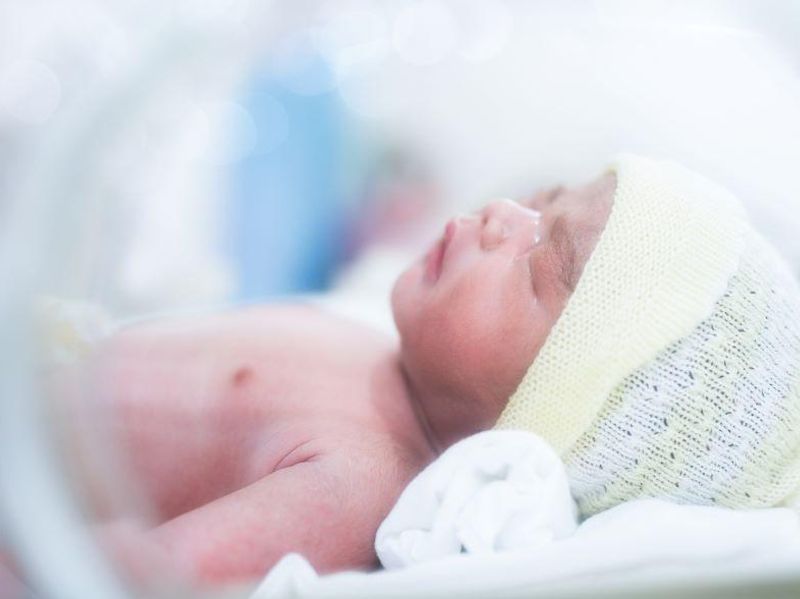THURSDAY, March 24, 2022 (HealthDay News) — For extremely preterm infants, hydrocortisone started on postnatal day 14 to 28 does not result in substantially higher rates of survival without moderate or severe bronchopulmonary dysplasia, according to a study published in the March 24 issue of the New England Journal of Medicine.
Kristi L. Watterberg, M.D., from the University of New Mexico Health Sciences Center in Albuquerque, and colleagues examined hydrocortisone treatment starting on postnatal day 14 to 28 in a trial involving 800 infants who had an estimated gestational age at birth of less than 30 weeks and who had been receiving mechanical ventilation through an endotracheal tube for at least seven days. Infants were randomly assigned to receive hydrocortisone or placebo (398 and 402 infants, respectively).
The researchers found that survival without moderate or severe bronchopulmonary dysplasia at 36 weeks occurred in 16.6 and 13.2 percent of infants in the hydrocortisone and placebo groups, respectively (adjusted rate ratio, 1.27; 95 percent confidence interval, 0.93 to 1.74). For 91.0 percent of the infants, two-year outcomes were known. Survival without moderate or severe neurodevelopmental impairment occurred in 36.9 and 37.3 percent of infants in the hydrocortisone and placebo groups, respectively (adjusted rate ratio, 0.98; 95 percent confidence interval, 0.81 to 1.18).
“In this large trial, hydrocortisone started at 14 to 28 days did not improve outcomes, so it may be ineffective in infants with an established inflammatory injury,” write the authors of an accompanying editorial.
Abstract/Full Text (subscription or payment may be required)
Editorial (subscription or payment may be required)
Copyright © 2021 HealthDay. All rights reserved.


